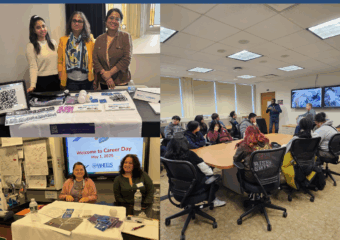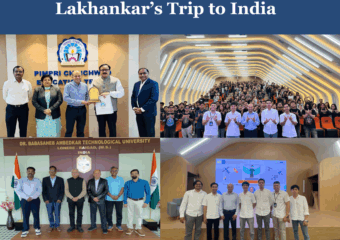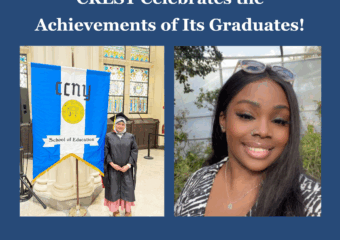CREST Participates in the 2023 Unifying Innovations in Forecasting Capabilities Workshop
CUNY CREST HIRES Director, Dr. Shakila Merchant participated in the 2023 Unifying Innovations in Forecasting Capabilities Workshop (UIFCW) by Earth Prediction Innovation Center (EPIC) and the Unified Forecast System (UFS). The workshop was held from July 24 to 28, 2023 at the University Corporation for Atmospheric Research (UCAR) Center, Boulder Colorado.
The theme of the workshop was ‘Innovation and Community’ and its goal was to ‘engage the greater Weather Enterprise in the ongoing effort to accelerate contributions to the Unified Forecast System.’ During the workshop, several engaging sessions were conducted. Attendees got the opportunity to participate in four engaging trainings:
- Contributing to UFS/EPIC GitHub Repositories
- Running UFS Land Data Assimilation (DA) System v1.1.0 in the Cloud
- Detecting Deforestation and Forest Degradation | Post Workshop Q&A
- Running the Short-Range Weather (SRW) Application v2.1.0 Containers in Azure with Post-Workshop Q&A
Additionally, attendees learnt about the updates and challenges of UFS applications and shared their research. Information on the full schedule and abstract details can be found here.
On the first day of the workshop, Dr. Shakila Merchant participated in the panel that discussed the importance and need for diversity and inclusion in community modeling. A talk by leaders from EPIC, the UFS, and UFS-R2O on community modeling preceded the panel discussion. Other panelists included Dr. DaNa Carlis, PMP – Director of the National Severe Storms Laboratory (NSSL), NOAA/OAR/ESRL/NSSL; Dr. Sen Chiao – Professor of Atmospheric Sciences, Howard University and Director of the NOAA Cooperative Science Center in Atmospheric Sciences and Meteorology (NCAS-M), NOAA/NCAS-M; Dr. Michael Farrar – Director of the National Centers for Environmental Prediction, NOAA/NWS/NCEP; and Bill Parker – Meteorologist-in-Charge (Jackson, MS WFO), NOAA/NWS.
During the panel, Dr. Merchant highlighted the work of the NOAA EPP.MSI Center for Earth System Sciences and Remote Sensing Technologies (CESSRST) Program in training a diverse workforce in the NOAA mission enterprise. She also emphasized on the uniqueness of the NOAA EPP/MSI education and training model and the national capacity and research infrastructure that the NOAA CESSRST II program provides, such as Lidar Network at CESSRST Institutional Sites (CCNY, UMBC, Hampton U), Long Island Sound Coastal Observatory (LISCO), NY, and NOAA Collaborative Field Campaigns and Cruises. Further, Dr. Merchant talked about what it means to be weather ready and shared the efforts that NOAA CESSRST/II and CUNY CREST has been putting into building future weather ambassadors and a community of scientists & engineers such as working with NOAA NWS Forecasters in understanding weather and sensing NYC boroughs through the New York Urban Hydrometeorological Testbed (uHMT) Project. She also highlighted the major academic programs developed in the last 20 Years through NOAA partnership at CUNY and discussed building capacity within MSIs/HBCUs R1 Institutions along with challenges and opportunities for all – faculty, staff, students.
The event was engaging and productive. Commenting on her experience, Dr. Merchant said, “it was good to see NOAA’s effort in engaging academic community in building a robust and diverse early career professionals in this endeavor, including early engagement from K12 level.”




